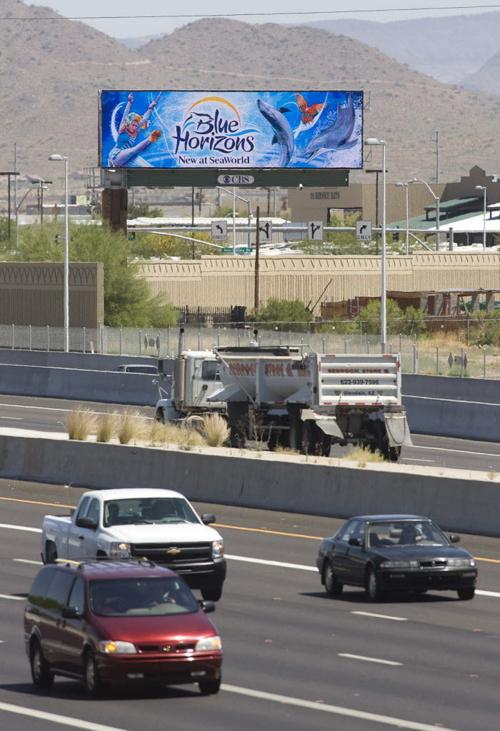State senators voted Wednesday to open a swath of northwest Arizona to electronic billboards.
Four Democrats joined with most of the Republicans to allow construction of up to 35 of these internally illuminated signs within 60 miles of Laughlin, Nev. That would open up an area stretching from south of Lake Havasu City to east of Kingman and north to nearly the Hoover Dam.
But to get the measure out of the Senate, Sen. Sonny Borrelli, R-Lake Havasu, had to agree to a series of compromises.
One was shrinking his original 2016 proposal, which would have opened up all of Mohave County to the signs. And aside from the limit, Borrelli agreed to limit the nighttime lighting to a lower level than is permitted elsewhere in Arizona where such signs are legal.
Sen. Steve Farley, D-Tucson, decried the fact that SB 1114 alters a deal that had been crafted in 2012 and approved by representatives of billboard companies who took part in negotiations.
That deal opened up a swath from the eastern suburbs of Phoenix west to the Colorado River to these electronic signs. Everything south, east and north of that was made off-limits in a bid to protect the dark skies relied on by the state’s observatories.
Borrelli urged colleagues to support his measures, saying it only affects his corner of the state. And he noted that this year’s version is not being opposed by the astronomy community, which helped kill the 2016 bill.
Sen. Lupe Contreras, D-Avondale, said that persuaded him to vote for this measure.
Farley, however, said these kinds of negotiations — and, from his perspective, surrender — set a bad precedent.
“Every time that’s happened they come back again the next year,” he said.
“And you add a little bit more, a little bit more until all of a sudden we’ve destroyed the golden goose that provides the golden eggs for our economy from our astronomy industry,” Farley continued. “We can’t do that.”
Sen. Olivia Cajero Bedford, D-Tucson, said she found it interesting that Borrelli’s legislation uses Laughlin as a central point.
“Why are we allowing more billboards to help Laughlin?” she asked, calling expansion of the area for electronic billboards “mind-boggling.”
Sen. Kate Brophy McGee, R-Phoenix, was the only Republican to vote against the measure. Other than Contreras, the other Democrats in support of SB 1114 were Sean Bowie, Robert Meza and Catherine Miranda, all of Phoenix.
The measure now goes to the House.







